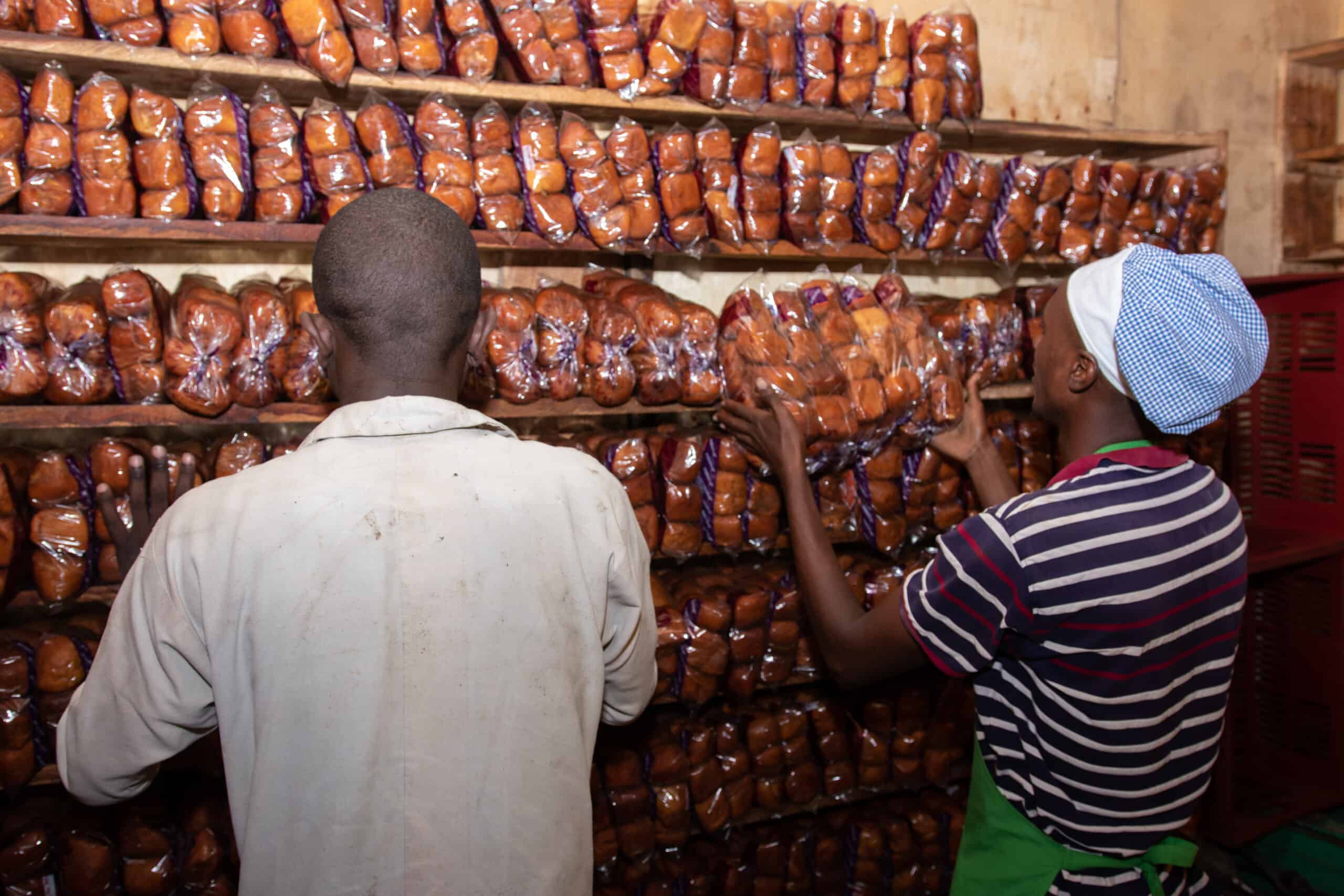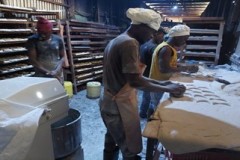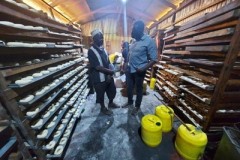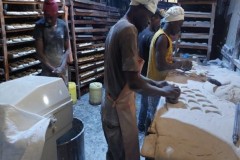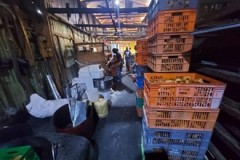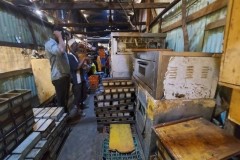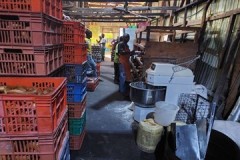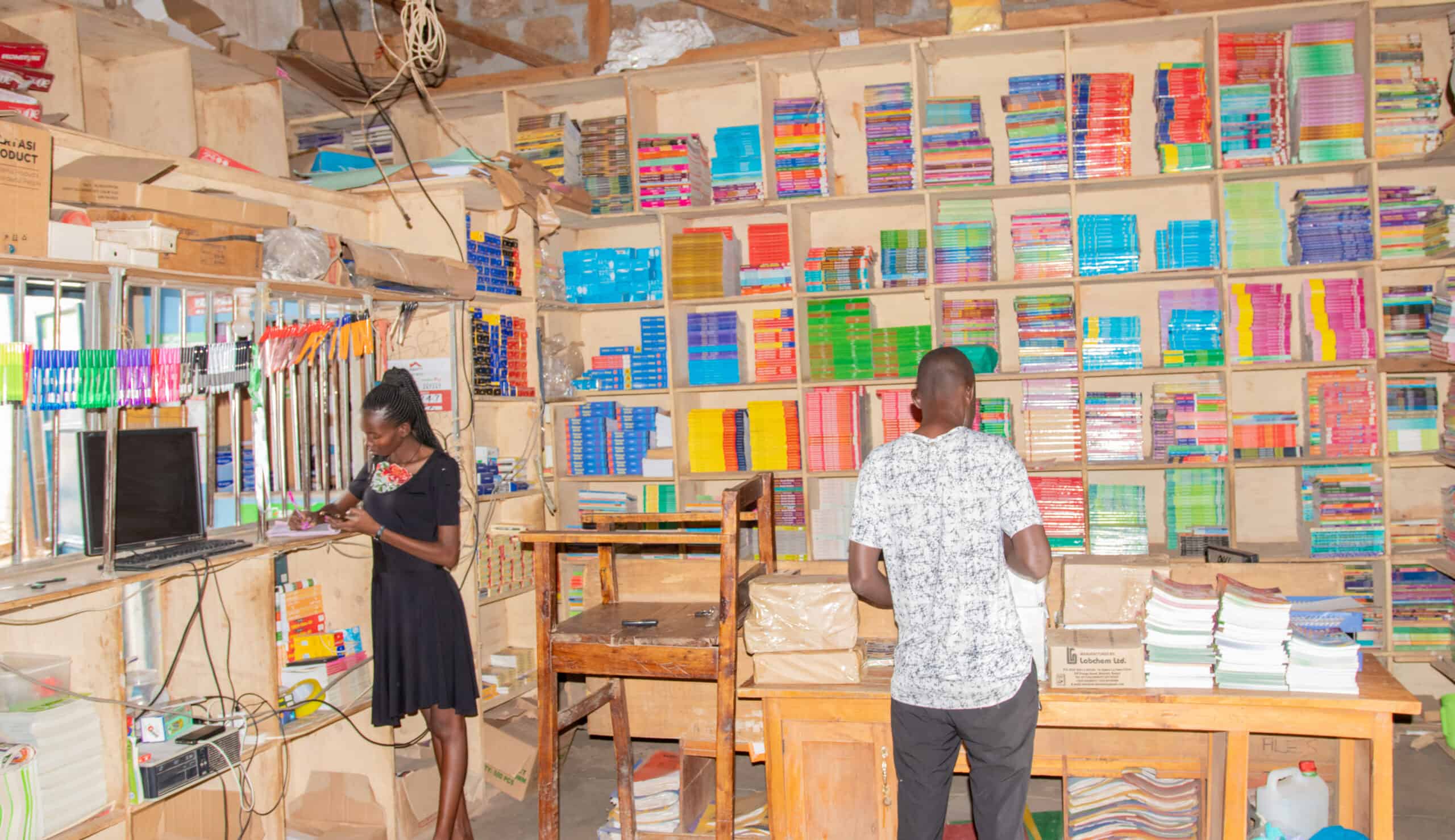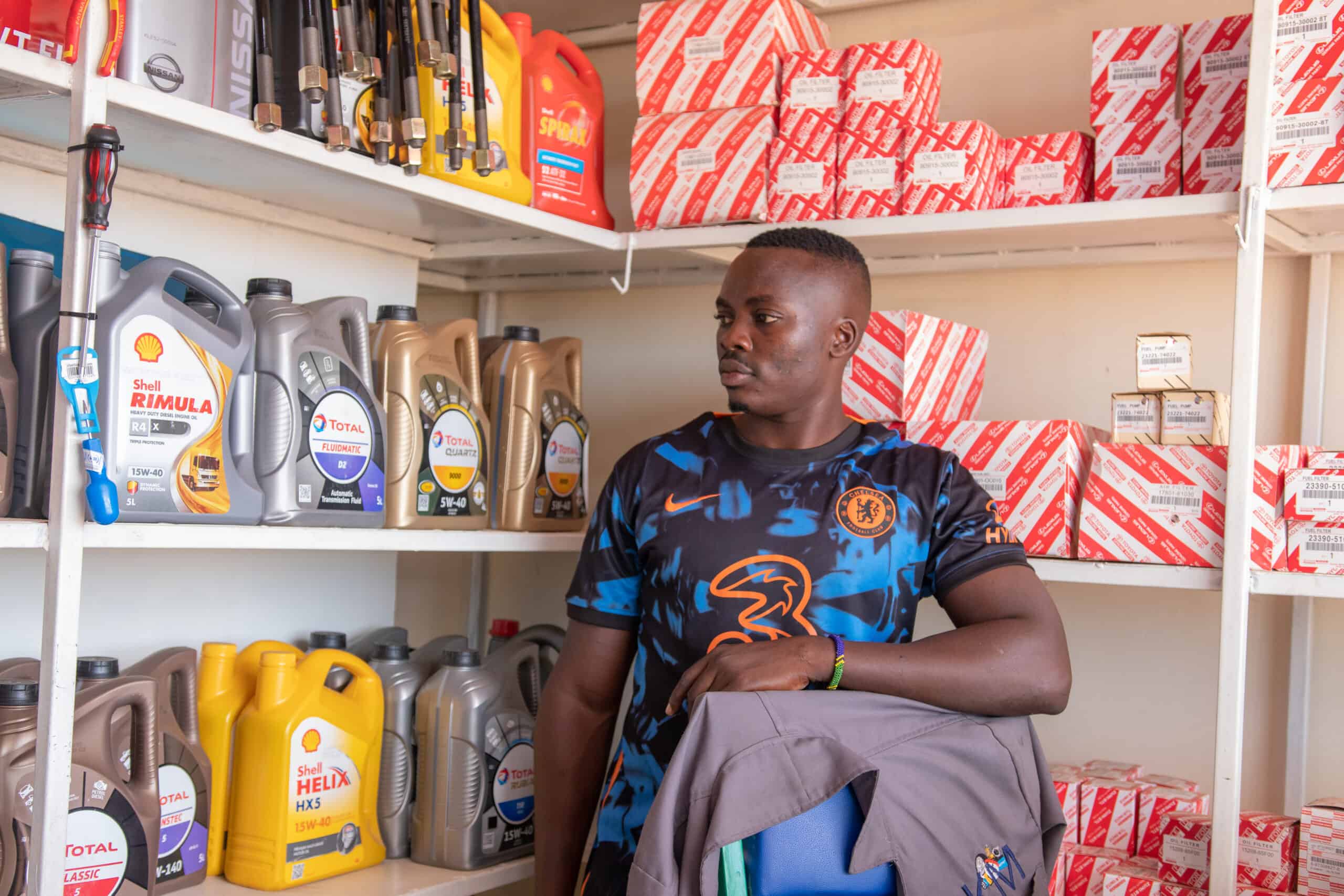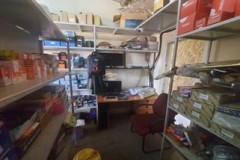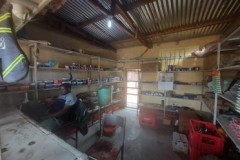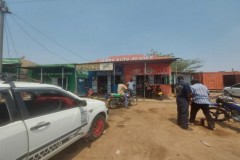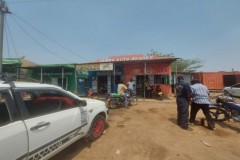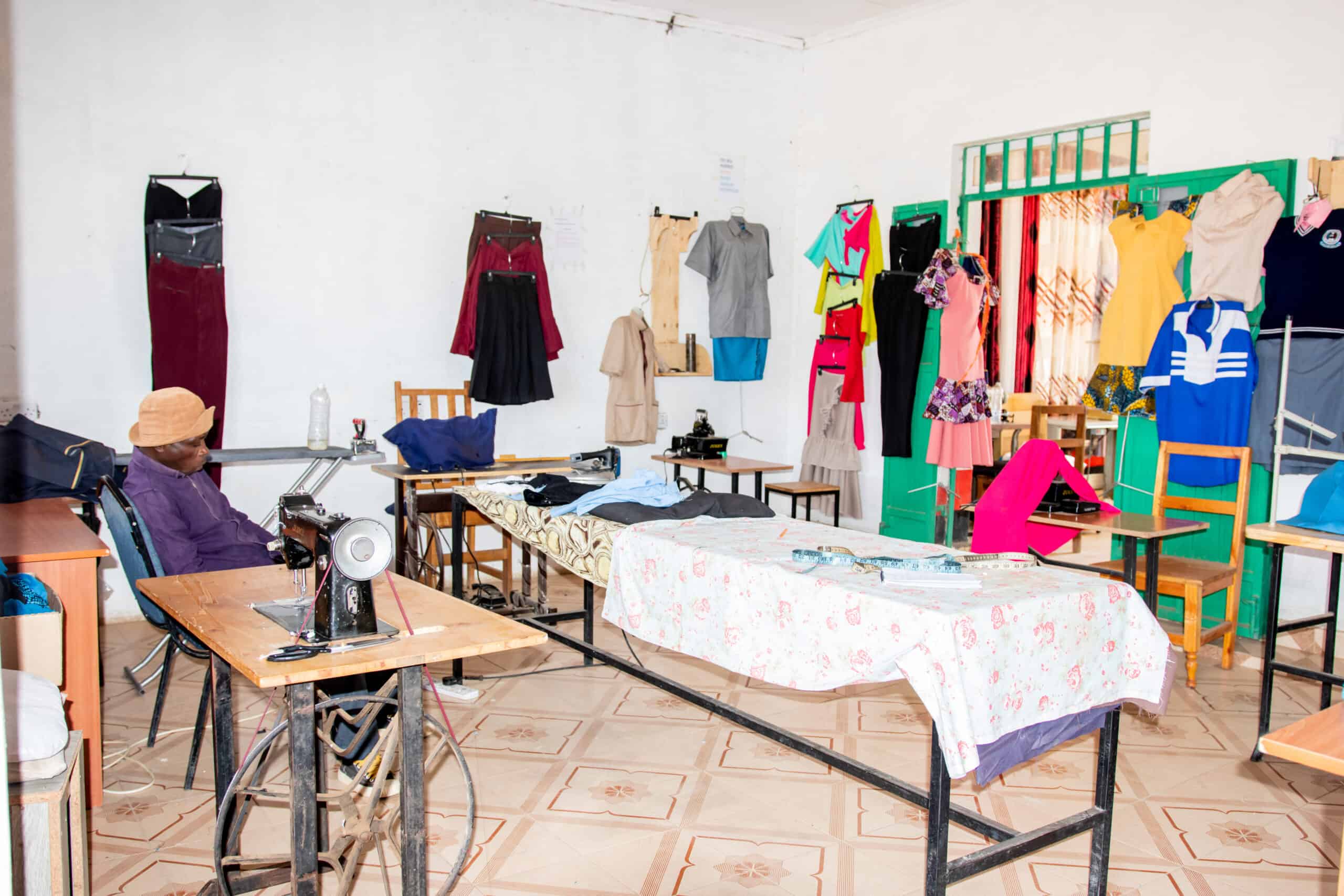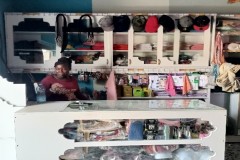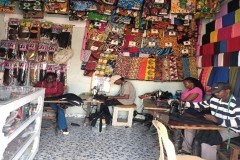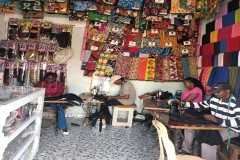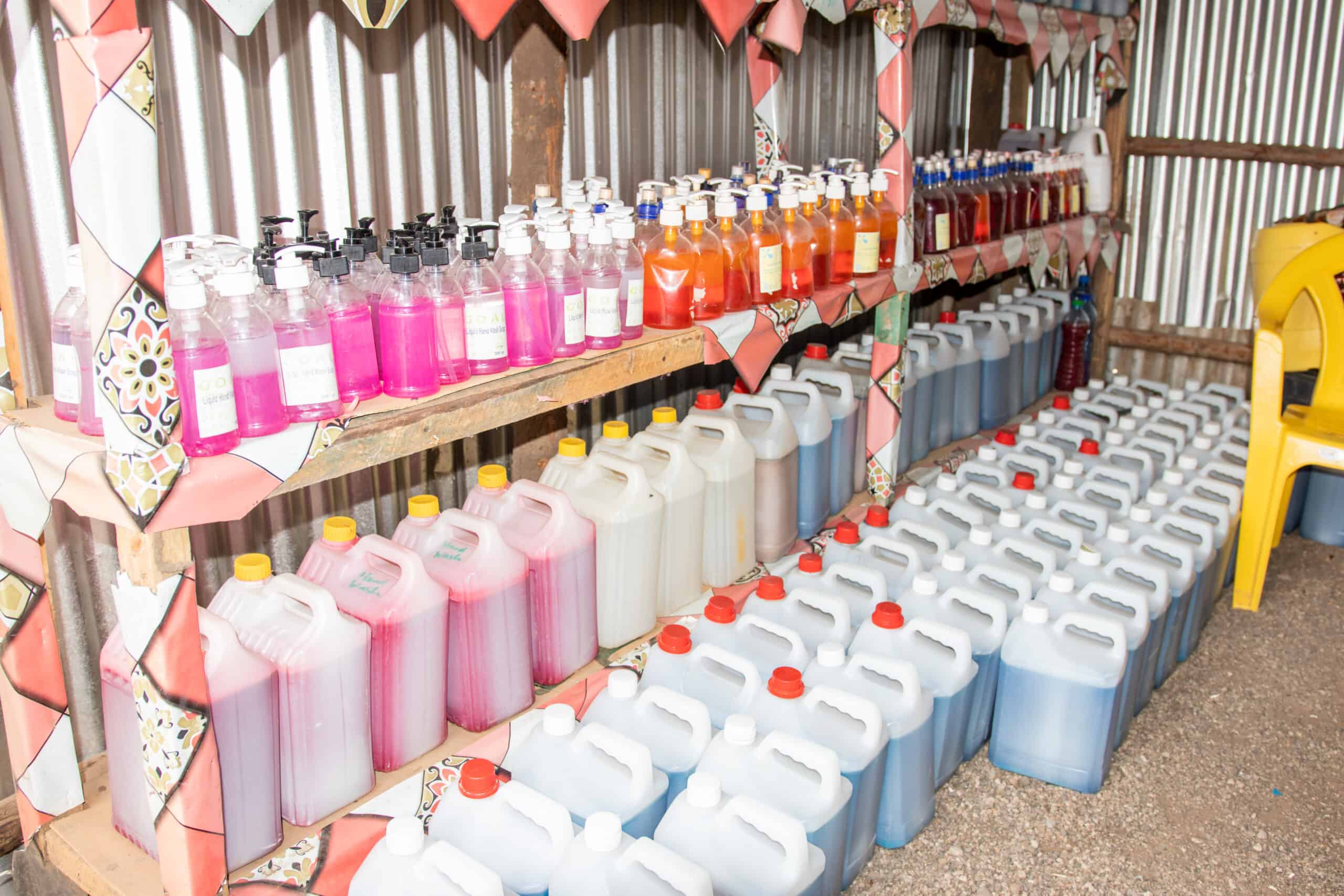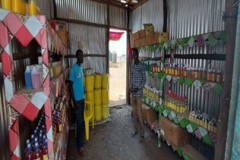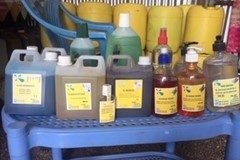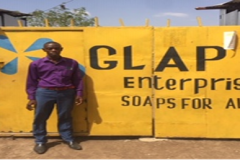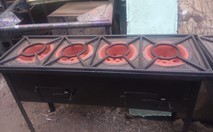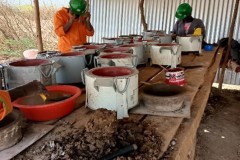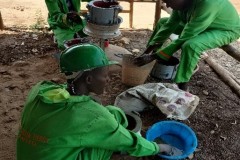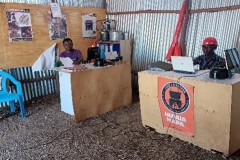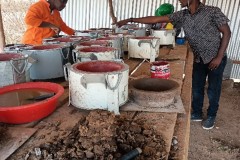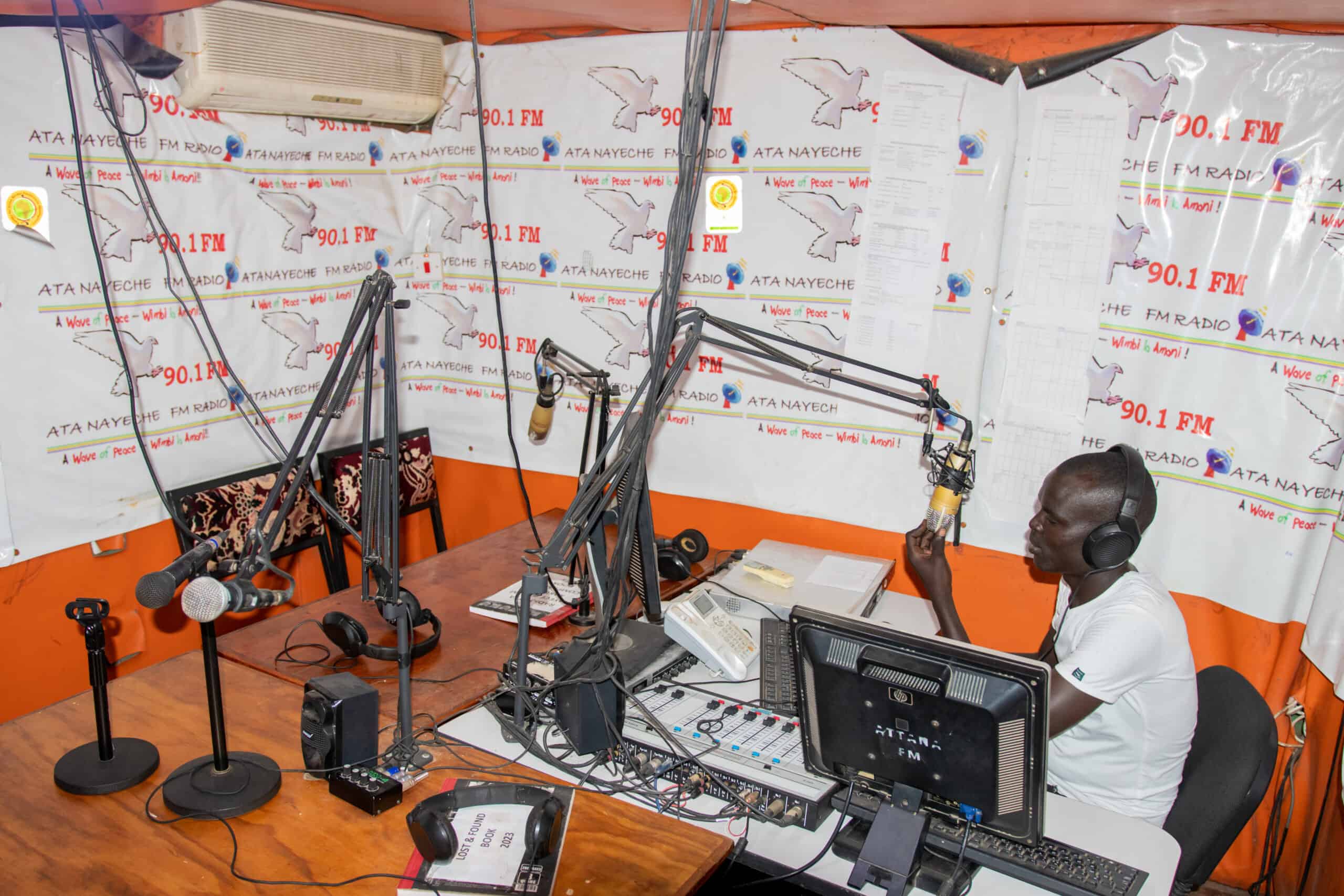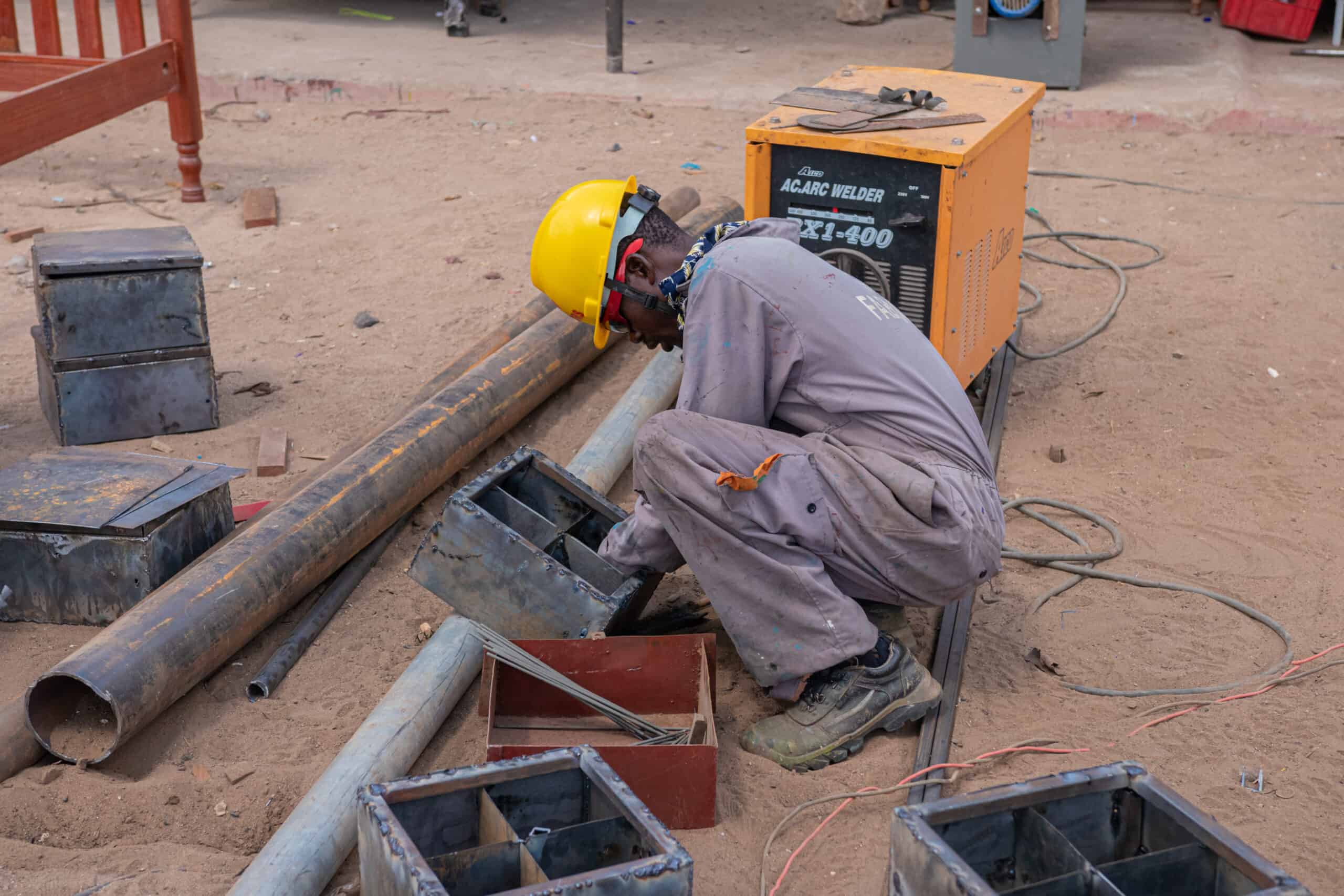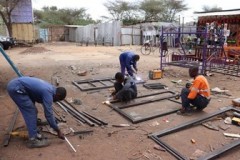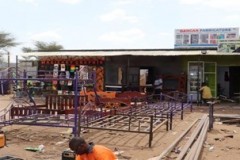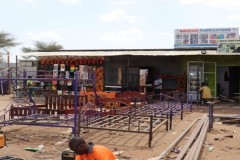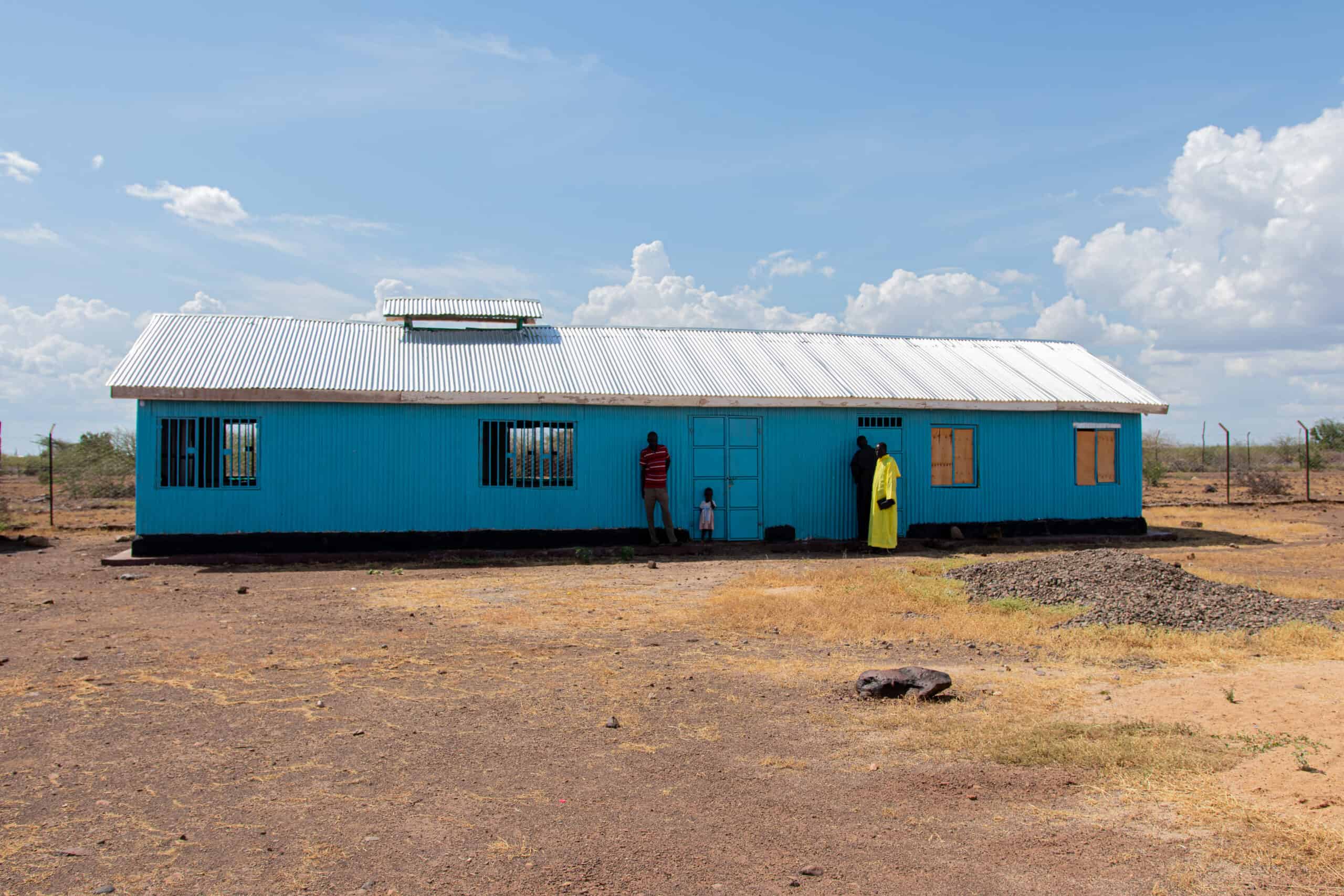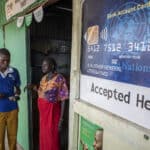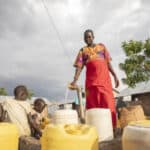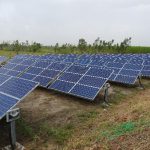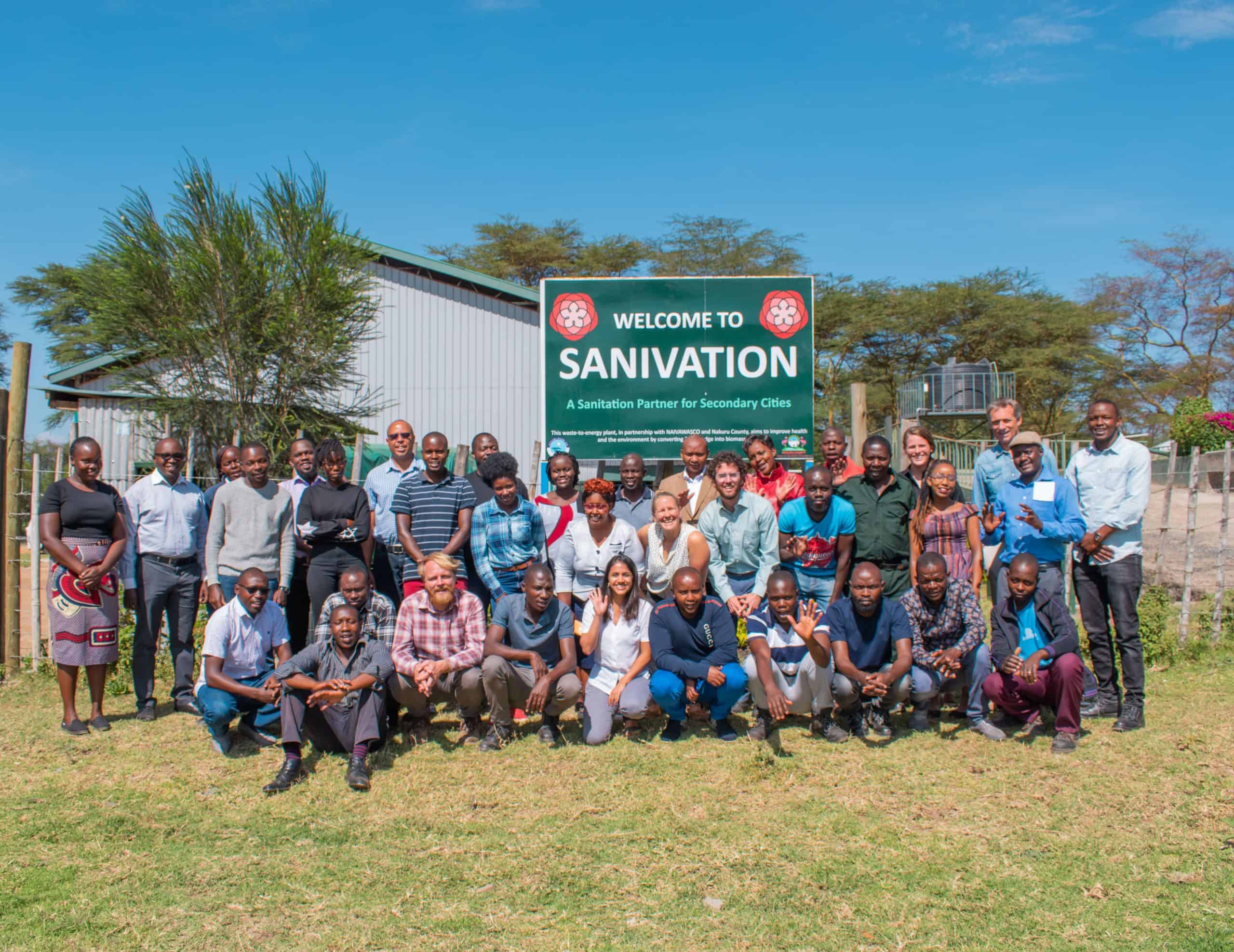
Sanivation Limited is a waste treatment company that partners with local governments to help meet the growing waste processing need from septic tanks and pit latrines. Their model is to build and operate faecal sludge treatment plants so that they can be operationally sustainable. Through the KKCF funding, Sanivation will operate and maintain a fecal sludge treatment plant near Kakuma that will convert waste to low-carbon fuel briquettes. This will provide Kakuma with a safe and affordable place to dispose of human waste, at the same time provide local institutions with a source of sustainable fuel.
Company FAQs
What attracted you to the Kakuma/Kalobeyei area? Why did you choose to apply for the KKCF funding?
This project aligns with our mission to make urbanising communities sustainable. While the current resources are insufficient for Kakuma’s fast-growing population, we are eager to establish an infrastructure and model that will support a durable public service. We are also keen to prevent the consequences of unsafe waste dumping as is the current practice where waste is deposited in a landfill outside the camp, with the likely possibility of future ground water contamination as the camp grows.
What do you look forward to doing in Kakuma/Kalobeyei? How do you see your business growing in the next 5 years? What challenges have you had to overcome?
We will build and operate a fecal sludge treatment plant near Kakuma that converts waste into low-carbon fuel briquettes. The revenue from selling fuel will reduce our plant’s operational costs, supporting long-term sustainability. Our objective is to provide Kakuma with a safe and affordable solution for human waste disposal that is not too far from the camp.
Currently, human waste from Kakuma must be transported all the way to Lodwar for safe disposal, and inevitably, because of the long distance involved, it usually ends up being dumped near the camp. Building a waste disposal plant in Kakuma will decrease the environmental degradation and reduce the current cost of waste collection.
Our second objective is to provide local institutions with a source of sustainable fuel. Our waste conversion process mixes fecal sludge with sawdust. Although biomass is the most-consumed energy source in Kenya, its unsustainable and unimpeded consumption leads to mass deforestation that accelerates climate change. We intend to produce fuel for sale to institutions for use in their biomass boilers, thus replacing firewood, the impact being a reduction in the rate of mass deforestation.
Each ton of fuel sold will save an estimated 22 trees.
The grant will fund:
- Capital costs of a waste-to-value treatment plant.
- Sales costs to secure fuel purchasing contracts with UNHCR and local institutions.
- The plant’s operational costs and fuel production for 18 months, after which it will be operationally sustainable, and sufficient to fund itself.
Sanitation is an expensive public good, yet a private sector actor like Sanivation can make it feasible. Kakuma faces extreme funding constraints that prevent stakeholders from setting up sanitation infrastructure and funding for consistent and effective waste treatment operations. The grant will de-risk a sanitation solution for Kakuma by providing up-front capital to provide sanitation and build a waste-to-value model that is operationally sustainable without further funding. The grant will also incentivise institutions to replace a portion of their firewood purchases with an energy source that does not degrade the environment.
What are the foreseeable impacts in the Kakuma and Kalobeyei area following your interventions?
This project will directly impact 30,000 people and create 10 direct jobs for local staff. The project will save 158,400 trees and 144,000 CO2eq over four years of funding. It will safely treat almost 5,000 tons of human waste from the community.
The negative effects of poor sanitation are greater for women, and improving waste management within Kakuma will benefit them positively. If less firewood is purchased, there will be fewer women facing security risks from firewood collection activities. Women will also have equal opportunities for selection to the jobs we create.
What advice would you give other SMEs that are working in fragile/difficult situations, with refugees and their host communities?
There is little funding for private companies in refugee camps, as resources are channelled through implementing partners. This makes it complex for the private sector actors to launch in Kakuma. However, despite their limited funds, SMEs should still be encouraged to develop long-term and sustainable solutions for both the refugees and host communities.
Steve King Bakers provides unique products such as bread and buns (baked and fried) across Turkana County.
There is a huge population in Kakuma and Kalobeyei, since most bakers use traditional methods to bake, Steve King bakers fill the gap by meeting the need for quality baked goods in the county and in Kakuma Kalobeyei area, the bakery through the support of KKCF is improving its baking operation through the acquisition of modern equipment to increase productivity.
Gallery
Kakuma Peana Bookshop provides education materials to schools and tertiary education centers within the Kakuma Kalobeyei area.
Bookshops in Kakuma town outsource supplies from Nairobi and the locality does not have a printing facility with desired capabilities to print quality exam materials. The planned acquisition of a large printing press will enable the business to print the exams for schools across Turkana West, reducing costs to refugee and host community schools and increasing level of assessments to leaners.
Through the KKCF funding, the bookshop will acquire and set up a large-scale printing machine and purchase initial machine consumables, and printing paper.
Gallery
Dembu Investments started as a motorbike spare parts shop that diversified into motor vehicle spare parts and the servicing of vehicles. The Motor vehicle and motorbike service business in Kakuma is largely untapped with vehicles being driven to Lodwar and Kitale for service and maintenance.
The Motor vehicle and motorbike service business in Kakuma is largely untapped despite the existence of many organizational vehicles in the area. These vehicles are usually driven to Lodwar and Kitale for service and maintenance.
Through the KKCF funding, the company is establishing a modern automobile maintenance and repair facility which will provide employment and apprenticeship opportunities.
Nemlon Enterprise offers tailoring and dressmaking services in Kakuma town. The increase in population in the Kakuma Kalobeyei area has meant that there is a huge demand for qualified tailors.
The increase in population, especially the refugees from different nationalities, has necessitated different clothing tastes and fashions in this industry. Additionally, the increase of school-going children has led to high demand for uniforms in Kakuma.
Through the KKCF funding, Nemlon intends to purchase suitable equipment for tailoring which will allow the business to meet the seasonal demand for school uniforms and provide employment opportunities to the youth in the region.
Gallery
GLAP Enterprises manufactures and sells various types of soap and disinfectants in the Kakuma Kalobeyei area. Additionally, it produces hair conditioners, baby soap, and hand sanitizers.
Hygiene products like bathing soap and washing detergents are vitally important in all households in preventing outbreaks of diseases. In Kakuma town, camps, and Kalobeyei, most of these products are sourced from Nairobi or Kitale. Through soap production, the GLAP enterprises have made these products affordable and easily available to the locals.
Intends to acquire soap manufacturing equipment that will enable it to increase production capacity and diversify its product line.
Gallery
Usafi Green Energy Limited is a clean energy company in Kakuma producing improved cookstoves and briquettes.
There is a high demand for clean cooking solutions in Kakuma- Kalobeyei Camp due to the large population and pressure exerted on the available resources for provision of fuel. The use of firewood in the camp presents threats to the environment as it causes pollution, deforestation, and respiratory diseases. Additionally, the cost of providing energy in the refugee camp is unnecessarily high in terms of money, health, and environmental impact. The business bridges this gap by providing clean energy solutions.
Through the KKCF funding, the company will increase its briquette and cookstove production capacity.
Atta Nayece Media Services Limited is a local radio station based in Kakuma that has programming in several local languages including Turkana, Swahili, English and Juba Arabic.
The station currently has a social educative impact, particularly on the youths who are majority of the listeners. Over the years the station has grown to offer wide range of broadcasting services and provide employment to 29 youths.
Through the KKCF funding, the radio station is purchasing and installing assorted modern radio telecommunication equipment and strengthen its frequency transmission to enable it to reach other parts of Turkana. This will allow them to reach a wider audience to disseminate information.
Gallery
Dan Fabricators offers welding and fabrication services in Kakuma town.
Despite the existence of a large population of about 260,000, the Furniture and metalwork market is largely untapped in Kakuma and Kalobeyei. Through the KKCF funding, Dan Fabricators will expand its operations and acquire a standby generator that will guarantee business continuity in providing quality and affordable finished goods.
Gallery
Eruko Savings and Credit Cooperative Society Limited is a Savings and Credit Cooperative Society (SACCO) that operates in Lodwar town. It provides savings and loans to its members while also availing aloe products as an income generating activity.
The SACCO has also carved out its niche in the region with its unique soap products as aloe Multipurpose soap, aloe Vera bathing bar soap and aloe Vera hair oil.
Through the KKCF funding, the SACCO is developing the aloe value chain in Kakuma Kalobeyei area where it intends to construct a warehouse and acquire a processing machine. This will create jobs for the local community specifically for women and the youth.

